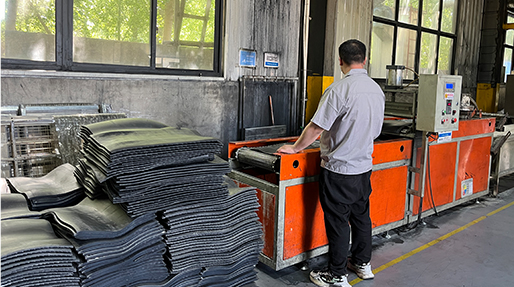car brake lines
nov . 17, 2024 01:50 Back to list
car brake lines
Understanding Car Brake Lines Essential Components for Vehicle Safety
When it comes to vehicle safety, one of the most critical yet often overlooked components is the brake system, particularly the brake lines. These essential parts play an integral role in the overall performance of a vehicle's braking system. In this article, we will delve into the purpose, types, maintenance, and importance of brake lines in ensuring safe driving.
What Are Brake Lines?
Brake lines are tubes or hoses that convey brake fluid from the master cylinder to the brake mechanisms at each wheel. This fluid transfer is necessary for the functioning of the hydraulic brake system, which relies on the principles of fluid mechanics to apply pressure to the brake pads against the rotors or drums. When you press the brake pedal, the master cylinder generates pressure, pushing the brake fluid through these lines and ultimately engaging the brakes.
Types of Brake Lines
There are primarily two types of brake lines used in vehicles rigid lines and flexible hoses
.1. Rigid Brake Lines These are typically made of steel or copper and are used in areas where a solid connection is required, such as under the vehicle's chassis. Rigid lines are designed to withstand high-pressure situations and are less prone to expanding under pressure. However, they can be more susceptible to corrosion, especially in regions where roads are salted during winter.
2. Flexible Brake Hoses Often made of reinforced rubber or other flexible materials, these hoses are necessary where movement is involved, such as at the wheel assembly. They allow for the natural motion of the suspension system without compromising the integrity of the braking system. However, flexibility also means that over time, these hoses may wear out and develop leaks, which can lead to brake failure.
Maintenance of Brake Lines
Proper maintenance of brake lines is crucial for ensuring vehicle safety. Here are some key tips for maintaining brake lines
car brake lines

- Regular Inspections It’s important to regularly inspect both rigid lines and flexible hoses for signs of wear, damage, or corrosion. Look for cracks, bulges, or leaks, especially at junctions and connections.
- Flushing Brake Fluid Brake fluid can absorb moisture over time, which can lead to corrosion within the brake lines. Flushing and replacing the brake fluid according to the manufacturer’s recommendations helps maintain a healthy brake system.
- Addressing Leaks Promptly If you notice a decrease in brake fluid levels or any signs of leaking lines, address the issue immediately. Brake fluid leaks can lead to a complete loss of braking power, posing a significant safety risk.
- Replacements When needed, don’t hesitate to replace old or damaged brake lines. It’s best to opt for high-quality replacement parts that meet or exceed OEM specifications.
Importance of Brake Lines
The significance of brake lines in a vehicle cannot be overstated. They are vital for the effective operation of the braking system, which is crucial for stopping the vehicle safely. A failure in the brake lines can lead to catastrophic outcomes, including accidents due to brake failure.
Furthermore, with the rising number of vehicles on the road, maintaining a robust and reliable braking system is more important than ever. Drivers should never underestimate the role of brake lines in vehicle safety and should prioritize their maintenance just as they would with other crucial components like tires, lights, and wipers.
Conclusion
Car brake lines are fundamental components that ensure the safe operation of vehicles. Understanding their types, maintenance needs, and significance can empower vehicle owners to take proactive steps towards ensuring their safety on the road. Regular checks and timely repairs can make a profound difference, safeguarding not only the driver but also passengers and pedestrians alike. Remember, when it comes to brakes, safety should always come first.
